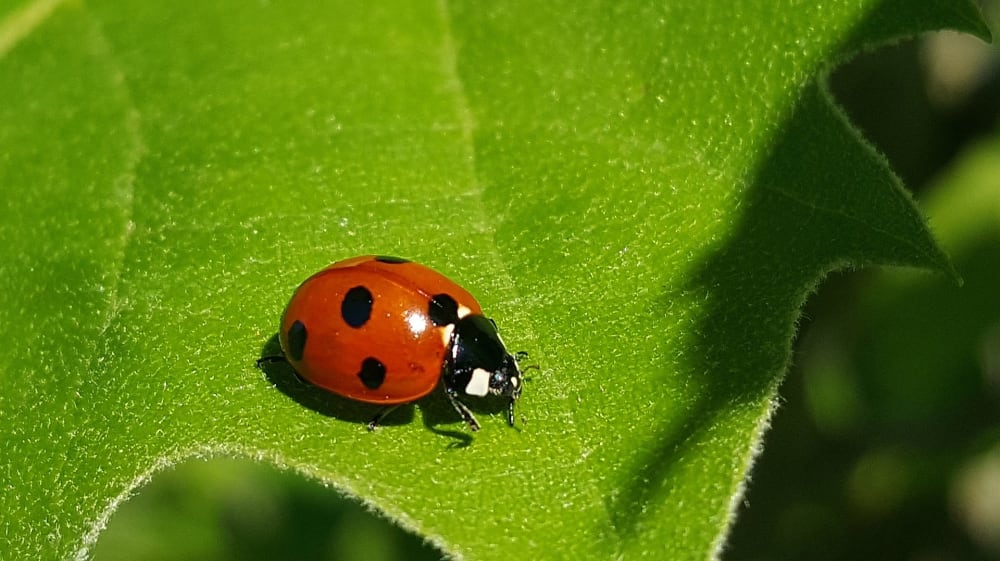
As the chill in the air returns each winter, I am reminded of the importance of beneficial garden insects. Hundreds of ladybugs somehow find their way into our master bathroom to seek the warmth and moisture, and they are fascinating to observe. I am certain if my mother reads this, I will soon get a lecture on the inefficiencies of our windows and doors, but this year it has been particularly enjoyable to observe the ladybugs because our two-year-old daughter loves them!
Each day when she runs into our bathroom to see "my ladybugs," we get to teach her about their importance in nature and instruct her not to touch or "pet" them. You see, these beautiful little creatures are tiny fierce predators. Each one can consume as many as 50 aphids in a single day.
Beneficial Insects
Beneficial insects, the good bugs that help our plants thrive, can be categorized into three groups.
-
Pollinators: These insects are the ones that pollinate our flowering garden plants.
-
Predators: These insects (like ladybugs!) get rid of unwanted pests by eating them.
-
Parasitizers: These insects lay their eggs on or in harmful bugs, and the larvae feed on the host insects.
Here are eleven beneficial insects you'll want in your garden—in addition to ladybugs of course!
1. Bees
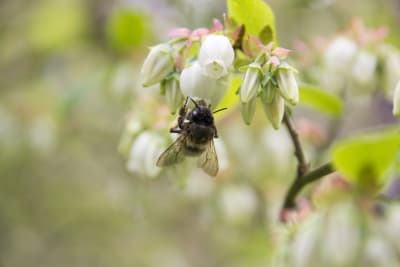
We can't have a list of beneficial insects without including bees. They are simply excellent pollinators! If you're growing blueberries, tomatoes, squash or other flowering plants, bees are great to have around your garden to help with pollination.
2. Green Lacewings
The larvae of green lacewings are predators that feed on a wide range of harmful bugs, including spider mites, aphids, white flies, caterpillars and other soft-bodied insects.
3. Parasitic Wasps
Parasitic wasps are stingless wasps that feast on bugs that are harmful to your garden, including leaf miners, whiteflies and aphids.
4. Hoverflies
Hoverflies, also known as flower flies, are vital pollinators. This type of fly's larvae are voracious predators, killing bad bugs such as aphids and scale insects.
5. Praying Mantis
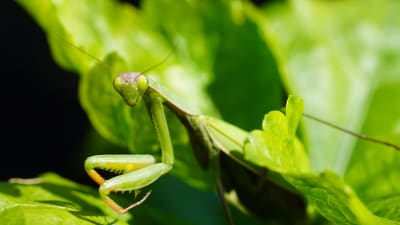
The praying mantis is a predator that will take care of grasshoppers, moths, beetles and flies in your garden.
6. Ground Beetles
Ground beetles certainly earn their spot as beneficial predators—just one beetle larvae can kill up to 50 caterpillars! They also benefit the soil, helping to decompose compost.
7. Aphid Midges
As the name implies, aphid midges prey on aphids! They can attack over sixty types of aphid species and are attracted by water sources and plants with plenty of nectar.
8. Tachinid Flies
These flies are important parasitizers of squash bugs, Japanese beetles, grasshoppers and more harmful insects. But they don't only kill bad bugs—they also help bees with pollination.
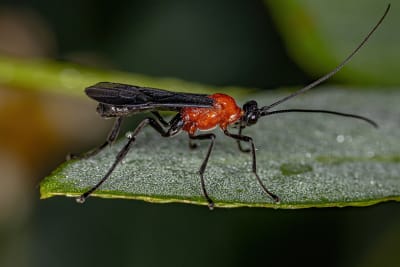
9. Braconid Wasps
Like tachinid flies, braconid wasps are parasitizers. These beneficial insects lay eggs and their larvae feed on, and ultimately kill, bag bugs such as the tomato hornworm. These wasps are beneficial as adults too as they will eat aphids, caterpillars, flies and more.
10. Damsel Bugs
Not to be confused with damselflies, damsel bugs love to eat garden pests like caterpillars, aphids, mites and cabbage worms. They're attracted to spearmint, caraway and fennel.
11. Assassin Bugs
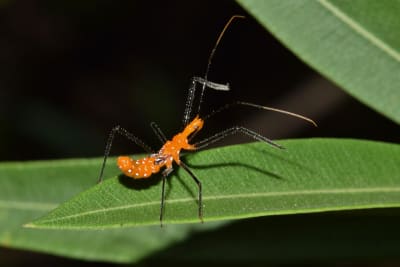
Although they resemble the harmful squash bug, assassin bugs are helpful and prey upon many types of insect pests.
Beneficial Bugs as Natural Pest Control
Perhaps the most significant benefit of certain insects is the natural pest control that they provide. "Integrated pest management" is a buzz term in agriculture that is used in many ways. Broadly, it only signifies a range of actions and tactics to control pests—typically insects that make a negative impact on agricultural production.
When beneficial bugs aren't quite enough to ward off the harmful bugs, our all-natural insecticide, Defender, is a safe option for crops and backyard gardens.
Our Natural Pest Control Spray
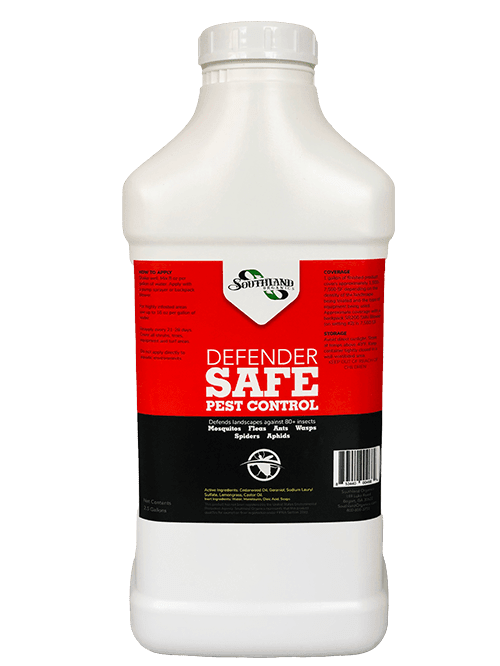
Defender works against mosquitoes, ticks, fleas, ants, aphids, mites and many more unwanted pests. It is a contact-kill pheromone interrupter and will disrupt future egg cycles. Defender is safe for people, pets, plants and the environment.
One of the best parts? It's also safe for pollinators, so you don't have to worry about harming those beneficial insects. The oils in Defender dry very quickly and become harmless to pollinators such as bees. Defender also includes geraniol, which is proven to attract pollinators.
Contact Us
To learn more about how beneficial insects and Defender can work together as natural pest control, contact us at success@southlandorganics.com or 800-608-3755.





